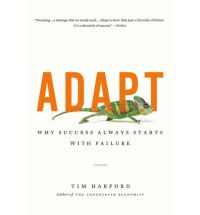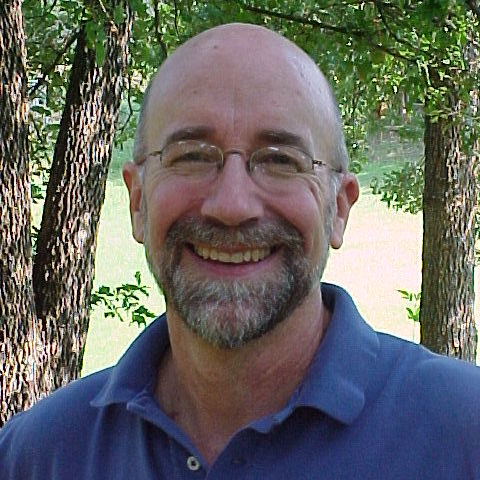
Like Ridley, Tim Harford is a non-academic economist and a delightful writer who synthesizes a wide range of research. Most academic economists, hunkered down with members of our like-minded tribe, do not see scholarship outside of our immediate area or fail to see significant implications that may be present in unfamiliar work.
Harford’s recent book, Adapt: Why Success Always Starts with Failure, weaves together many threads of research that, like Ridley’s work, gives us insights about what needs to be done to construct richer models to help explain our world.
Harford shows that experts are generally no better at predicting the future than non-experts. Foreign policy experts cannot predict what will happen in Russia and financial gurus cannot predict stock market winners. Companies that are hailed as examples of genius in management books end up bust. About ten percent of all firms fail annually. No one wants to fail; organizational evolution is at work. Once important, Wang computers disappeared during the booming computer era; IBM survived in a more modest form by adapting to the changing environment.
The survival pattern of organizations is surprisingly similar to that of natural organisms. Why that is we do not understand, but the evidence is powerful enough that it indicates important areas of future work. Successful organizations often come from out of the blue, not from diligent R&D work within existing dinosaurs. We know that, but our existing models do not explain why that is. Intellectual modesty is in order.
Adapt provides examples of experimentation with incentives to deal with problems of corruption and other maladies. By fumbling around with different systems, we may stumble on one that works better than others, in part because it is a better fit to local institutions that could not be intuited a priori. Harford’s point is not that we cannot improve institutions, but that, as the central planner Chairman Mao said (but did not practice), we should let 1,000 flowers bloom so we find out what works.
Man-made climate change may be upon us but, as Harford explains, almost all common prescriptions about how to reduce our carbon footprint are irrelevant or counterproductive. The world is deeply complex and our facile prescriptions, such as buying a Prius or setting “renewable energy” quotas, are environmentally laughable and economically destructive.
“Solutions” imposed by central planners, even if devoid of political interests, cannot do better than adaptive organizations that evolve in ways we do not understand. Central planning of the environment is likely to be disastrous compared to bottom-up experimentation by individuals competing to develop successful entities, which include goals such as environmental protection.
Evolution and economic structures have important links that are not well understood. Economics is an infant discipline compared to a true queen of science, physics, which has developed profound
principles, such as the second law of thermodynamics, that are regularly put into practice.
Economics is much more modest. Fancy-appearing models failed to see the economic train coming down the track that ran over us in the most recent recession. After the fact, we diligently noted that the train hit us. While macroeconomics is a failure, those toiling in the microeconomic vineyard, including environmental economists, have made some useful additions to knowledge.
When faced with evidence that the standard model we rely upon may miss the forest for the trees, it is not uncommon to reject or ignore such information. Cognitive dissonance is not surprising when one realizes that a lifetime of deep scholarship is shallower than we thought.
At PERC, we have learned to scoff at the notion that high science can divine unknown prices that planners wish to impose on environmental assets. Such “scientific” methodology is destined to be as destructive as all other central planning imposed by leaders who do not pay for the assets they wish to control or do not suffer the burden of the losses that follow.
As Harford explains, we do have some useful grounding in economics. “Hayek realized… that a complex world is full of knowledge that is localized and fleeting.” We would do well to temper the notion that we know what should be imposed on the environment and economy. If we individually do silly things, we bear much of the cost of our mistakes. When we build our inadequate knowledge into environmental rules to be obeyed by all, we may pay fearful prices.
Tim Harford‚ Adapt: Why Success Always Starts with Failure‚ 2011.



